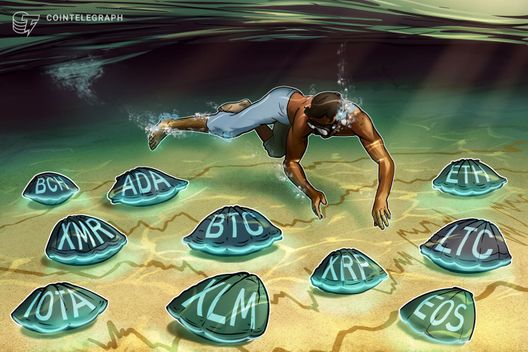Are stablecoins securities? Well, its not so simple, say lawyers
Recently reported planned enforcement action against Paxos by the United States Securities and Exchange Commission (SEC) over Binance USD (BUSD) has many in the community questioning how the regulator could see a stablecoin as a security.
Blockchain lawyers told Cointelegraph said that while the answer isn’t black and white, there exists an argument for it if the stablecoin was issued out in the expectation of profits or are derivatives of securities.
A report from the Wall Street Journal on Feb. 12 revealed that the SEC is planning to sue Paxos Trust Company in relation to its issuance of Binance USD, a stablecoin it created in partnership with Binance in 2019. Within the notice, the SEC reportedly alleges that BUSD is an unregistered security.
don’t hate me but custodial stablecoins are probably all securities
I have said this consistently
US securities laws are just insanely broad…https://t.co/JDsB0v93Sw
— _gabrielShapir0 (@lex_node) February 13, 2023
Senior Lecturer Dr. Aaron Lane of RMIT’s Blockchain Innovation Hub told Cointelegraph that while the SEC may claim these stablecoins to be securities, that proposition hasn’t been conclusively tested by the U.S. Courts:
“With stablecoins, a particularly contentious issue will be whether the investment in the stablecoin led a person to an expectation of profit (the ‘third arm’ of the Howey test).”
“On a narrow view, the whole idea of the stablecoin is that it is stable. On a broader view, it could be argued that arbitrage, hedging, and staking opportunities provide an expectation of profit,” he said.
Lane also explained that a stablecoin may fall under U.S. securities laws in the event that it is found to be a derivative of a security.
This is something that SEC Chairman Gary Gensler emphasized strongly in July 2021 in a speech to the American Bar Association Derivative and Futures Law Committee:
“Make no mistake: It doesn’t matter whether it’s a stock token, a stable value token backed by securities, or any other virtual product that provides synthetic exposure to underlying securities.”
“These platforms — whether in the decentralized or centralized finance space — are implicated by the securities laws and must work within our securities regime,” he said at the time.
However Lane stressed that ultimately each case “will turn on its own facts,” particularly when adjudicating on an algorithmic stablecoin as opposed to a crypto or fiat-collateralized one.
A recent post by Quinn Emanuel Trial Lawyers has also approached the subject, explaining that in order to “ramp up” stablecoins to a “stable value,” they may sometimes be offered on discounted prior to sufficiently stabilizing.
“These sales may support an argument that initial purchasers, despite formal disclaimers by issuers and purchasers alike, buy with the intent for resale following stabilization at the higher price,” it wrote.

But while stablecoin issuers may resort to the courts to decide the dispute, many believe the SEC’s “regulation by enforcement” approach is simply uncalled for.
Digital assets lawyer and partner Michael Bacina of Piper Alderman told Cointelegraph that the SEC should instead provide “sensible guidance” to help the industry players who are seeking to be legally compliant:
“Regulation by enforcement is an inefficient way of meeting policy outcomes, as SEC Commissioner Peirce has recently observed in her blistering dissent in relation to the Kraken prosecution. When a rapidly growing industry doesn’t fit the existing regulatory framework and has been seeking clear pathways to compliance, then engagement and sensible guidance is a far superior approach than resorting to lawsuits.”
Cinneamhain Ventures partner Adam Cochran gave another view to his 181,000 Twitter followers on Feb. 13, noting that the SEC can sue any company that issues financial assets under the much broader Securities Act of 1933:
1/5
This is what people don’t realize.
Howey test = precedent for investment contracts.
“Securities” is a much broader category defined by the 1933 Securities Act.
Honestly, if the SEC wants to, with how vague the act is, its fairly easy to put anything under it. https://t.co/TbHKqO3zLD
— Adam Cochran (adamscochran.eth) (@adamscochran) February 13, 2023
The digital asset investor then explained that the SEC isn’t restricted to the Howey Test:
“The fact that these assets hold underlying treasuries, makes them a lot like a money market fund, exposing holders to a security, even if they don’t earn from it. Making an argument (not one I agree with, but a reasonable enough one) that they can be a security.”
“Worth fighting tooth and nail, but everyone who is shrugging this off as “lol the SEC got it wrong, this doesn’t pass the Howey test” needs to re-eval. The SEC, believe it or not, has knowledgeable securities counsel,” he added.
Related: SEC chair compares stablecoins to casino poker chips
The latest reported planned action from the SEC comes after reports emerged on Feb. 10 that Paxos Trust was being investigated by the New York Department of Financial Services for an unconfirmed reason.
Commenting on the initial reports, a spokesperson for Binance said BUSD is a “Paxos issued and owned product” with Binance licensing its brand to the firm for use with BUSD. It added Paxos is regulated by the New York Department of Financial Services (NYDFS) and that BUSD is a “1 to 1 backed stablecoin.”
“Stablecoins are a critical safety net for investors seeking refuge from volatile markets and limiting their access would directly harm millions of people across the globe,” the spokesperson added. “We will continue to monitor the situation. Our global users have a wide array of stablecoins available to them.”









